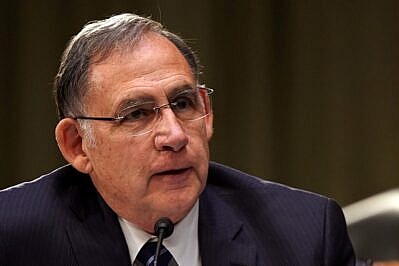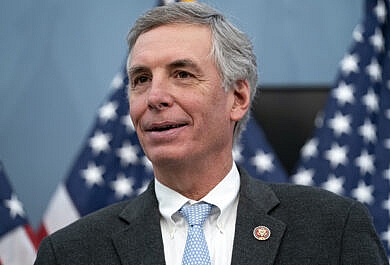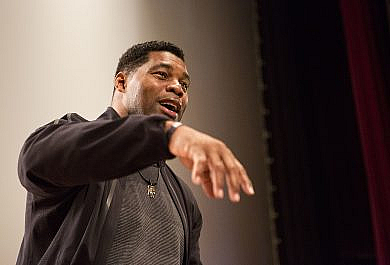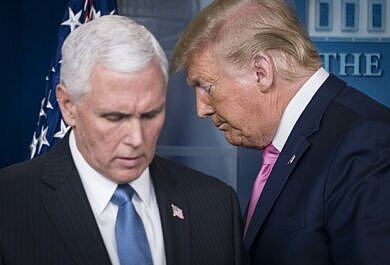Georgia’s Republican voters gave Trump’s picks the Heisman on Tuesday, choosing conservative incumbents over Trump’s endorsed candidates in nearly every contested primary.
Summary
Georgia’s Republican voters gave Donald Trump’s picks the Heisman on Tuesday, choosing conservative incumbents over Trump’s endorsed candidates in nearly every contested primary. Alabama, Texas, and Arkansas voters also went to the polls in Tuesday’s ‘SEC primary.’
- Georgia Gov. Brian Kemp demolished former Sen. David Perdue by a punishing 73.7%-21.8% margin. Former president Donald Trump recruited Perdue to punish Kemp for not overturning Biden’s 2020 victory in the Peach State and contributed $3.5 million to Perdue’s fruitless bid.
- Trump tried to end Georgia Secretary of State Brad Raffensperger’s career after Raffensperger leaked a Jan. 2021 call from Trump urging him to “find” more votes in 2020, but he defeated Rep. Jody Hice with 52 percent of the vote.
- Heisman Trophy-winning University of Georgia football star Herschel Walker was one of the few non-incumbent Trump endorsees to win his primary on Tuesday. Walker, who was also endorsed by Sen. Mitch McConnell (R-KY), will face Sen. Raphael Warnock in November.
- Alabama Business Council chief Katie Britt (R) placed first in the Senate primary to succeed her former boss, retiring Sen. Richard Shelby. She will face Rep. Mo Brooks, who Trump endorsed – and then unendorsed – in the June runoff.
- Alabama Gov. Kay Ivey (R) and Arkansas Sen. John Boozman (R) easily defeated their primary challengers, while former Trump press secretary Sarah Huckabee Sanders won the GOP nomination for Arkansas governor in a landslide.
- Texas Attorney General Ken Paxton (R) handily turned back a primary challenge from Texas Land Commissioner George P. Bush, son of Jeb(!), by a 68-32 margin. Bush’s family name proved to be a more of a problem for GOP primary voters than Paxton’s 2015 indictment.
- The closely watched rematch between progressive activist Jessica Cisneros and Rep. Henry Cuellar, the last pro-life House Democrat, remains too close to call. Cuellar leads Cisneros by fewer than 200 votes, and the winner will face Republican Cassy Garcia in the general election.
![]()
- Politico covered ‘why heavyweight Republicans no longer fear Trump.’ Top conservatives like former vice president Mike Pence, Sen. Ted Cruz, and Sen. Rand Paul are “weary of the incessant conflicts” and “an endorsement strategy driven by a bruised and restless ego, rather than the party’s best interests.”
- The New York Times portrayed Georgia’s results as a “rejection” of Trump’s “meddling” in their primaries in a failed effort to punish Georgia conservative politicians who “crossed him in 2020.” The Times noted the defeats of Trump’s preferred candidates can partly be attributed to the “degree of difficulty” inherent in taking down an incumbent governor.
- CNN used Herschel Walker’s victory to assess what has become a “record-setting year” for Black Republicans. The GOP has 81 Black candidates, including Walker and veterans Wesley Hunt (TX) and Jeremy Hunt (GA), an indication of the party’s greater appeal to minority communities. Instead, CNN concluded many Black Republicans are just “opportunists.”
![]()
- Fox News reported Stacey Abrams, the Democratic nominee for governor of Georgia and 2018 election conspiracy theorist, serves as a board member of a foundation that supports abolishing the police. Abrams had previously stated she did not support the #DefundThePolice movement.
- The Washington Examiner said Georgia’s primary indicated Republican voters are looking forward to the future, not backward to re-litigate 2020.
- National Review called Tuesday “a bad night for lies.” Georgia Republicans ignored Trump’s 2020 election conspiracy theories and renominated Brian Kemp and Brad Raffensperger. Not only that, but Georgia voter turnout was “enormous,” rebutting the conspiracy theories spread by Joe Biden and Stacey Abrams of Georgia “voter suppression” and “Jim Crow 2.0.”
Author’s Take
Three trends seem clear after Tuesday’s SEC primaries. First, Republican voters want candidates who talk about inflation, crime, and immigration, not conspiracy theories about the so-called “stolen” 2020 election. Second, Republicans are more willing to consider Trump’s endorsements for federal office (where, frankly, legislators can go to Washington and bloviate but accomplish little) than for state office, where their governors have a serious job and actually have to keep the trains running on time. Third, Trump’s backing can give candidates a boost in multi-way open seat primaries, but his imprimatur alone is not enough to get Republican voters to fire their elected officials with solid conservative records.
Trump’s endorsement record in governors’ races this cycle is now 1-3. His attempts to primary Govs. Brian Kemp (GA) and Brad Little (ID) were turned back by the voters with punishing margins, and his pick in Nebraska – Charles Herbster – won barely one-third of the vote after a series of sexual harassment and groping allegations. His lone victory, Pennsylvania’s Doug Mastriano, was already leading in the polls by a significant margin before Trump backed him two days before the election.
The message Republican primary voters are sending is clear. When Republicans candidates talk about Trump’s policy issues – immigration, crime, the economy, trade – they win. When Republican candidates talk about Trump’s personal grievances like the 2020 election, they lose.
© Dominic Moore, 2022






